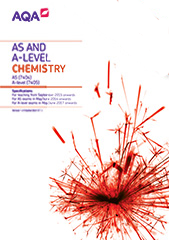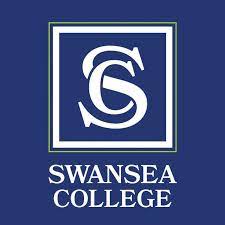Project Description
Course Overview
AQA Qualification Code: 7405
Chemistry is an excellent preparation for students looking to extend their understanding of a key physical science. It is a central science which opens up the possibility of a huge range of science related university courses and jobs. These includes medicine and health related professions such as dentistry, pharmacy and veterinary sciences etc., as well as chemical engineering, optometry and courses that overlap with maths and physics.
A Level Chemistry blends particularly well with other science subjects such as Physics and Biology. Some students also take it as a complementary course alongside their other choices. If you are interested in how things work and why materials behave as they do then chemistry is for you
Course Options:
1. Self Study
All of our A Levels are studied online with support from our specialist subject tutors. You will be given access to our online learning materials and e-books. Your tutor will provide detailed feedback on your learning & mock exams. They will also be on hand over the phone, video calls, WhatsApp or email to support & guide you.
- Access to full course online
- e-books provided
- Workbooks* will be posted
- Interactive quizzes*
- Google Classroom Access
- Tutor email support
- Register your exams with us
- Online live classes – these are live interactive classes.
- These classes are recorded and can be watched back, access available for 7 days
- Access to full course online
- e-books provided
- Workbooks* will be posted
- Interactive quizzes*
- Google Classroom Access
- Homework/assignments set and mark & feedback provided
- Mock assessments in Autumn and Spring
- Register your exams with us
- UCAS Application support
The Classroom Environment
Our online/in-person classes are small making learning more accessible for learners and gives the classroom environment a calm atmosphere to learn. Having a limited number of students in the classroom gives the students more one-on-one time with their teacher, for teachers to review students’ work, to provide feedback on what went well, and how to improve students’ work for the future.
About our teachers
Our teachers are enthusiastic about learning. Teachers will support students towards their individual pathways in education.. Our teachers are here to help!
Course structure – Self-study option
- Total course – 160 hours online
- Students are expected to study 6 hours per week, independently
Course structure – PLUS option
- 3 hours of online live classes per week over 20 weeks
- Students are expected to study a further 3 hours per week, independently
- Total course – 160 hours online
Course fees – Self-study Option
- Enrolment fee: £80
- Course fee: £650
Installments available over 8 months (Sept- April) – pay £66.25 per month (after deducting the application fee)
Course fees for PLUS Option
- Enrolment fee: £80
- Course fee: £1200
How to Apply?
- Complete the application form
- Send a scanned, coloured copy of your Passport or Driving License office@swanseacollege.com
- Pay the application fee of £200 (the application fee is made up of £80 enrolment fee and £120 towards the course fee, this fee is non-refundable)
Choose your Science Practical endorsement option:
- Complete Science Practical endorsements with Swansea College
- Carry forward from previous exam series (evidence required on application)
- Complete Science Practical endorsements with BioGrad
- If you opt out of practical endorsements. Your results certificate will display Not Classified (you must check the entry requirements for the university course you wish to study and see if the practical endorsement is a requirement)
Course Contents
The course is structured into bite-sized parts:
- Atomic structure
- Amount of substance
- Bonding
- Energetics
- Kinetics
- Chemical equilibria, Le Chatelier’s principle and K
c - Oxidation, reduction and redox equations
- Thermodynamics
- Rate equations
- Periodicity
- Group 2, the alkaline earth metals
- The Halogens
- Properties of Period 3 elements and their oxides
- Transition metals
- Reactions of the ions in aqueous solution
- Introduction to organic chemistry
- Alkanes
- Halogenoalkanes
- Alkenes
- Alcohols
- Organic analysis
- Optical isomerism
- Aldehydes & ketones
- Carboxylic acids and derivatives
- Aromatic chemistry
- Amines
- Polymers Amino acids, proteins and DNA
- Organic synthesis
- Nuclear magnetic resonance spectroscopy
- Chromatography
Entry Requirements:
GCSE Chemistry grade C or above.
Assessments
Mock Assessments will take place in December and March/April. (PLUS option only).
Register for your exams by 20th January
Register Science Practical endorsements
A level: 3 written exams and *optional practical endorsement
Optional practical endorsement. It is possible for students to receive an A Level Biology qualification without completing the practical endorsement, although your certificate will state you have not completed this and can harm your chances of gaining a place at university or getting a job.
*Is it Optional for Me? Whilst being optional, 15% of your written grade will come from your knowledge of practical elements, so if you are looking to optimise your grade, you would be recommended to consider taking the practical lab assessment. If you plan to study a Science related degree at university it is likely you will require the practical endorsement.
You will be awarded up to 56 UCAS points per A Level
Have a question? Ask our virtual assistant on live chat below
or call us on 01792 535000 and speak to our experienced Student Adviser.


